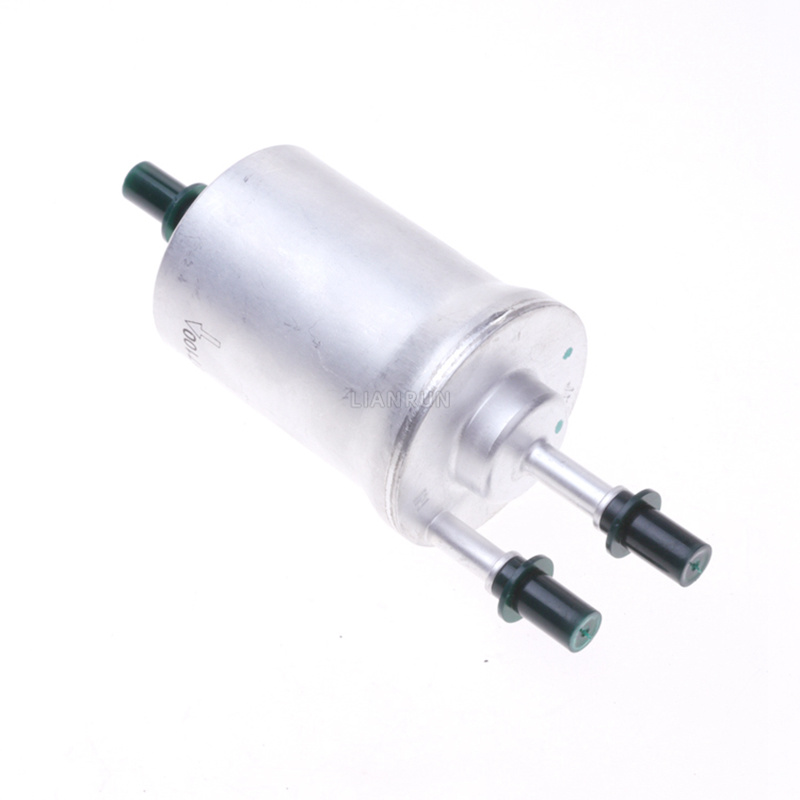
How often should a fuel filter be changed?
Release time:
24 Jul,2025

Unlocking Engine Performance: A Comprehensive Guide to Fuel Filter Maintenance
In the ever-evolving world of automotive engineering, ensuring optimal engine performance has become a priority for both car owners and manufacturers alike. One often-overlooked component crucial to the health and efficiency of an engine is the fuel filter. Understanding its role, recognizing the signs of wear and tear, and adhering to a proper maintenance schedule can significantly enhance a vehicle’s fuel efficiency and overall performance.
The Vital Role of the Fuel Filter
Fuel filters are essential components that prevent impurities in the fuel from reaching the engine. Dirt, rust, and other contaminants that enter your fuel system can cause serious damage, leading to costly repairs or even engine failure. The fuel filter traps these undesirable particles, allowing only clean fuel to pass into the engine. Therefore, maintaining this small but mighty filter is key to ensuring smooth engine operation and longevity.

How Often Should You Change Your Fuel Filter?
The consensus among automotive experts is that fuel filters should generally be changed every 15,000 to 30,000 miles. However, this recommendation can vary based on several factors including:
Type of Vehicle: Different vehicles have different specifications. Always refer to your owner’s manual for specific recommendations regarding fuel filter replacement.
Driving Conditions: If you frequently drive in areas with high road debris, dust, or harsh weather, you may need to change your filter more often.
Fuel Quality: Using low-quality or contaminated fuel can lead to clogged filters more quickly. Regularly fill up at reputable gas stations to mitigate this risk.
Engine Size: Larger engines may demand more fuel flow, and their filters could clog faster under such conditions.
Performance Degradation: If you notice a decline in performance—such as hesitation during acceleration, rough idling, or reduced fuel efficiency—it may be time to check or replace your fuel filter.
Signs of Clogging
Being proactive is crucial when it comes to fuel filter maintenance. Here are several signs that your fuel filter may be clogged and needs attention:
●Engine Misfires: If the fuel filter is not allowing enough fuel to flow to the engine, you may experience misfires and a lack of power.
●Difficulty Starting: When fuel cannot pass through the filter easily, starting the engine may require several attempts.
●Reduced Fuel Efficiency: A clogged filter forces the engine to work harder, leading to increased fuel consumption and decreased economy.
●Unusual Engine Noises: If you hear whining or sputtering sounds, this might indicate a fuel supply issue linked to a clogged filter.
●Warning Lights: Modern vehicles come equipped with onboard diagnostics. If the check engine light comes on, it could signal issues within the fuel system including a potential clog.
The Benefits of Regular Fuel Filter Maintenance
Maintaining your fuel filter offers numerous benefits beyond simply avoiding engine trouble. Here are some advantages you can gain from regular filter upkeep:
Enhanced Fuel Efficiency: A clean fuel filter promotes proper fuel flow, allowing the engine to operate at peak efficiency and improving your vehicle's miles per gallon (MPG).
Prolonged Engine Life: Keeping the fuel system clean can prevent build-up or damage to important engine components, ultimately extending the life of your engine.
Improved Performance: Regular replacement of the fuel filter ensures that the engine receives an ample supply of clean fuel, leading to better acceleration, power, and overall driving experience.
Lower Emissions: A well-functioning fuel filter also contributes to a cleaner burn in the engine, which can result in lower emissions and a reduced environmental impact.
Avoiding Costly Repairs: Preventative maintenance is always less costly than addressing problems that arise from neglect. Replacing a fuel filter is significantly cheaper than repairing or replacing a damaged engine or fuel injectors.
Expert Tips for Maintaining Your Fuel Filter
To ensure your fuel filter continues to perform efficiently, consider these expert tips:
●Follow a Maintenance Schedule: Adhere to the manufacturer-recommended schedule for fuel filter changes. If you’re unsure, consult a trusted mechanic.
●Use Quality Fuel: Whenever possible, fuel your vehicle with high-quality gasoline from reputable sources to reduce the risk of contamination.
●Check Fuel Lines: Regularly inspect your fuel lines for leaks, which can introduce contaminants into the system and compromise your fuel filter.
●Monitor Engine Performance: Keep an eye on how your vehicle behaves. If you notice any changes, don’t hesitate to have it checked out.
●Keep Records: Maintain a log of when you last changed your fuel filter along with other regular maintenance tasks. This helps keep track of your vehicle’s health over time.
Current Market Hotspots for Automotive Parts
As the automotive market continues to mature, certain regions have become hotspots for automotive parts and maintenance resources. Here are some key areas:
Northeast Region: Demand for fuel efficiency has spurred growth in the automotive aftermarket, particularly in states like New York and Pennsylvania, where vehicle longevity is a priority due to harsh weather conditions and long commuting distances.
West Coast: California leads in environmental regulations, necessitating high-performance and clean-burning vehicles. This urban market drives innovation in fuel efficiency technologies and services.
Southern States: In warm climates, fuel quality can drastically affect engine performance due to the risk of vapor lock. Here, preventative maintenance services emphasizing fuel filter changes are thriving.
Great Lakes Area: Midwestern states benefit from a combination of accessibility to agricultural markets and urban environments, making fuel efficiency a highlighted concern among consumers.
Conclusion: Stay Ahead with Fuel Filter Maintenance
In an era where performance, fuel efficiency, and environmental responsibility are at the forefront of automotive innovation, maintaining your fuel filter is a relatively straightforward yet essential task. By understanding the importance of this component, recognizing the signs of clogging, and adhering to a schedule for replacement, vehicle owners can unlock endless benefits—from enhanced performance to lower emissions.
Whether you’re an experienced car enthusiast or a casual driver, taking the time to fully grasp the nuances of fuel filter maintenance can save you from headaches down the road and extend the life of your vehicle. For full access to our insightful article on optimal engine performance and fuel filter maintenance, don’t hesitate to dive deeper into the information available at your fingertips. Let your car reach its highest potential—one clean filter at a time!
Tag:



